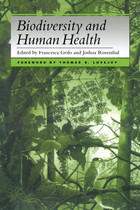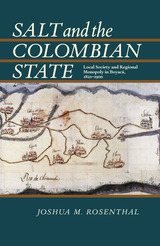
The implications of biodiversity loss for the global environment have been widely discussed, but only recently has attention been paid to its direct and serious effects on human health. Biodiversity loss affects the spread of human diseases, causes a loss of medical models, diminishes the supplies of raw materials for drug discovery and biotechnology, and threatens food production and water quality.
Biodiversity and Human Health brings together leading thinkers on the global environment and biomedicine to explore the human health consequences of the loss of biological diversity. Based on a two-day conference sponsored by the National Institutes of Health, the National Science Foundation, and the Smithsonian Institution, the book opens a dialogue among experts from the fields of public health, biology, epidemiology, botany, ecology, demography, and pharmacology on this vital but often neglected concern.
Contributors discuss the uses and significance of biodiversity to the practice of medicine today, and develop strategies for conservation of these critical resources. Topics examined include:
- the causes and consequences of biodiversity loss
- emerging infectious diseases and the loss of biodiversity
- the significance and use of both prescription and herbal biodiversity-derived remedies
- indigenous and local peoples and their health care systems
- sustainable use of biodiversity for medicine
- an agenda for the future
The book provides a common framework for physicians and biomedical researchers who wish to learn more about environmental concerns, and for members of the environmental community who desire a greater understanding of biomedical issues.

In republican Colombia, salt became an important source of revenue not just to individuals, but to the state, which levied taxes on it and in some cases controlled and profited from its production. The salt trade consistently accounted for roughly ten percent of government income.
In the town of la Salina de Chita, in Boyacá province, thermal springs offered vast amounts of salt, and its procurement and distribution was placed under the jurisdiction of the Ministry of Finance. Focusing his study on la Salina, Joshua M. Rosenthal presents a fascinating glimpse into the workings of the early Colombian state, its institutions, and their interactions with local citizens during this formative period. Although historians have cited the state’s weakness, and in many cases, its absence in local affairs, Rosenthal counters these assumptions by documenting the primary role the state held in administering contracts, inspections, land rights, labor, and trade in la Salina, and contends that this was not an isolated incident. He also uncovers the frequent interaction between the state and local residents, who used the state’s liberal rhetoric to gain personal economic advantage.
Seen through the lens of the administration of la Salina’s salt works, Rosenthal provides a firsthand account of the role of local institutions and fiscal management in the larger process of state building. His study offers new perspectives on the complex network of republican Colombia’s political culture, and its involvement in provincial life across the nation.
READERS
Browse our collection.
PUBLISHERS
See BiblioVault's publisher services.
STUDENT SERVICES
Files for college accessibility offices.
UChicago Accessibility Resources
home | accessibility | search | about | contact us
BiblioVault ® 2001 - 2024
The University of Chicago Press









